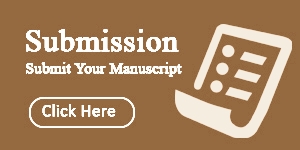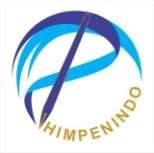Penilaian Tingkat Kekeritisan Lahan Pertambangan dan Beberapa Pengguanaan Lahan Lainnya di Kalimantan Selatan
Abstract
Critical land is land that is no longer productive from an agricultural perspective, because management and use do not consider land management requirements and soil conservation principles. This research aims to assess the level of criticality of land based on the level of erosion that occurs at various coal mining land locations in several districts in South Kalimantan. This research is non-experimental research using exploratory descriptive methods. The data collected is secondary data obtained through official publications from the Environmental Service and related agencies from several environmental documents of coal mining companies that have received approval from the authorized Agency. The secondary data used is the data needed to calculate the amount of erosion which is used as a basis for evaluating land criticality. These data include: soil texture, permeability, bulk density, rainfall, slope and slope length, management factors, land cover vegetation factors and soil organic C. Erosion estimation uses the Universal Soil Loss Equation (USLE) method. The results of erosion calculations using USLE show that in open mine land in Banjar Regency it is 233.9 tons ha-1 year-1, while in Tanah Laut Regency is 173.1 tons ha-1 year-1 and in Kotabaru Regency is 275.1 tons ha-1 year-1. The level of criticality of land in the mining area is at a critical and very critical level compared to natural land and cultivated land due to differences in erosion values and also the thickness of the soil solum studied.
References
Ariyono, B.G. 2020. Laporan Kinerja Tahun 2019. Direktorat Jenderal Mineral dan Batubara Kementerian Energi dan Sumberdaya Mineral, Jakarta.
Arsyad, S. 2000. Konservasi Tanah dan Air. IPB Press, Bogor.
Badan Pusat Statistik Kalimantan Selatan. 2019. Kalimantan Selatan dalam Angka 2018. Badan Pusat Statistik, Kalimantan Selatan.
Cardoso, D.P., Silva, E.M., Avanzi, J.C., Muniz, J.A., Ferreria, D.F., Silva, M.L.N., Acuna-Guzman, S.F., Curi, N. 2020. RainfallErosivityFactor: An R package for rainfall erosivity (R-factor) determination. Catena 189, 104509. https://doi.org/10.1016/j.catena.2020.104509
Corral-Pazos-de-Provens, E., Rapp-Arrarás, I., Domingo-Santos, J.M. 2023. The USLE soil erodibility nomograph revisited. International Soil and Water Conservation Research 11(1), 1-13. https://doi.org/10.1016/j.iswcr.2022.07.001
Eppink, L.A.A.J, 1985. Soil Conservation and Erosion Control. Dept. of Land and Water Use, Agric. Univ., Wageningen.
Felix, F.C., Candido, B.M., de Moraes, J.F.L. 2023. How suitable are vegetation indices for estimating the (R)USLE C-factor for croplands? A case study from Southeast Brazil. ISPRS Open Journal of Photogrammetry and Remote Sensing 10, 100050. https://doi.org/10.1016/j.ophoto.2023.100050
Hammer, W.I. 1981. Final Soil Conservation Report. Center for Soil Research, Bogar.
Kirui, O.K., Mirzabaev, A., von Braun, J. Assessment of land degradation ‘on the ground’ and from ‘above’. SN Appl. Sci. 3, 318. https://doi.org/10.1007/s42452-021-04314-z
Kusumandari, A. 2014. Soil erodibility of several types of green open space areas in Yogyakarta City, Indonesia. Procedia Environmental Sciences 20, 732-736. https://doi.org/10.1016/j.proenv.2014.03.087
Kumarasiri, A.D.T.N., Udayakumara, E.P.N., Jayawardana, J.M.C.K. 2023. Chapter 14 - Modeling soil erosion: Samanalawewa watershed, Sri Lanka, Editor(s): Indrajit Pal, Rajib Shaw, Multi-Hazard Vulnerability and Resilience Building, Elsevier, pp. 205-220.
Mulya, S.A., Khotimah, N. 2021. Assessment of soil erosion hazard in Prambanan District using RUSLE (Revised Universal Soil Loss Equation). IOP Conf. Series: Earth and Environmental Science 884, 012010. https://doi.org/10.1088/1755-1315/884/1/012010
Ran, Q., Wang, F., Li, P., Ye, S., Tang, H., Gao, J. 2018. Effect of rainfall moving direction on surface flow and soil erosion processes on slopes with sealing. Journal of Hydrology 567, 478-488. https://doi.org/10.1016/j.jhydrol.2018.10.047
Rauf, A. 2011. Dasar- Dasar Pengelolaan Daerah Aliran Sungai. USU Press, Medan.
Yang, M., Yang, Q., Zhang, K., Wang, C., Pang, G., Li, Y. 2023. Effects of soil rock fragment content on the USLE-K factor estimating and its influencing factors. International Soil and Water Conservation Research 11(2), 263-275. https://doi.org/10.1016/j.iswcr.2022.07.003

















